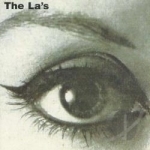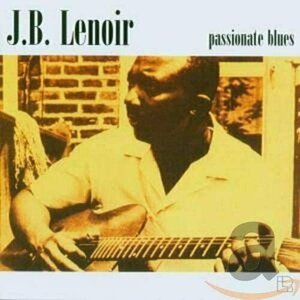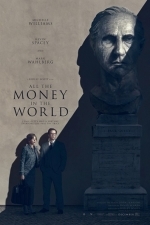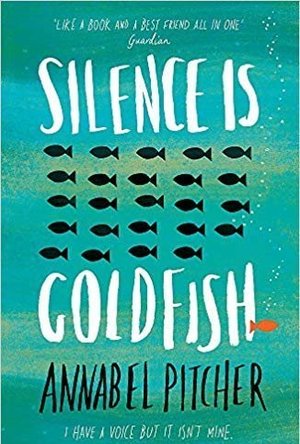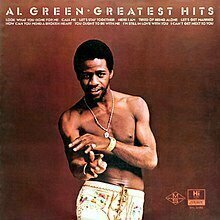Noel Gallagher recommended La's by The La's in Music (curated)

pro soccer 2016 game - free football head games
Games
App
Are you a football maniac? Do you have football frenzy? If yes, Best Real Speed Pro football 2016...

hungryhouse - takeaway food delivery
Food & Drink and Lifestyle
App
Order takeaway online with our free app! With our app you can browse restaurant menus, read customer...
Ian Anderson recommended Alabama Blues/Passionate Blues by JB Lenoir in Music (curated)
Bob Mann (459 KP) rated All the Money in the World (2017) in Movies
Sep 29, 2021
But actually on watching the film I take it all back. Plummer’s role is not, like Dench’s, a mere eight minutes of screen time, but extensive and pivotal. Not only was his nomination richly deserved (his performance is cold, eerie and magnificent!) but Ridley Scott deserved an award for getting so much great footage in the can in such a short space of time.
The film tells the true story of the feckless John Paul Getty III (Charlie Plummer, no relation), grandson to the richest man in the world John Paul Getty I. While in the Piazza Farnese in Rome, JPGIII is kidnapped and a $17 million reward is sought for his release. Whilst claiming to love his offspring, the tycoon is basically a ‘tight git’ and the film concerns the battle of the young heir’s mother Gail (Michelle Williams, “Manchester By The Sea”; “The Greatest Showman”) to persuade JPG1 and his right-hand negotiator Fletcher Chase (Mark Wahlberg, “Patriot’s Day”, “Deep Water Horizon“) to shake the money tree* and get JPGIII released.
*To be fair, JPGIII hasn’t exactly helped his case as it emerges he had previously joked about getting himself kidnapped to get his grandfather’s ransom money!
As I didn’t remember the historical outcome of this, I was in a suitable amount of suspense as to where it would go. It is clear though, from the wiki version of the story, that the ending was significantly ‘sexed-up’ for the movie.
Ridley Scott sensibly balances the views of the Getty’s with the views of the kidnappers, with a semi-sympathetic Italian (Romain Duris) being the focus of those scenes in rural Calabria.
But it’s the scenes with Plummer that really engage. The man as portrayed is an enigma, eccentrically washing his own clothes to save a few pennies and always (ALWAYS) trying to get 20% more on even the most personal of decisions. It makes me really intrigued to see Spacey’s portrayal now… I wonder if the alternate cut might make it onto the Blu-ray? I actually think though that Plummer was the better choice for this: I could see Spacey bringing far too much of Frank Underwood to the role.
Elsewhere in the cast, I think Michelle Williams and Mark Wahlberg are both solid without ever being spectacular and it’s nice to see the talented Andrew Buchan (“The Mercy“; “Broadchurch”) in a more memorable big screen outing as JPG2: his drug-addled son (and JPG3’s father).
Overall, it’s an interesting watch and had me sufficiently engaged to want to watch it again. But without Plummer’s role it wouldn’t really amount to nearly as much.
Hazel (1853 KP) rated Silence Is Goldfish in Books
Dec 14, 2018
With an intriguing title, British author Annabel Pitcher continues to attract young adult readers with her third contemporary novel. <i>Silence is Goldfish</i> is set in the English city of Manchester where fifteen-year-old Tess lives with her mother and father – well, the man she believed to be her father. On accidentally discovering vital information that her parents have withheld from her, Tess is determined to run away to London. After a failed attempt, Tess opts for the next best way of coping: she vows to never speak again.
Naturally everyone is worried about Tess: her parents, schoolteachers, friend; but she does not let their feelings fool her into believing the lies they have forced upon her. As things spiral out of control at school with in increase in bullying and the loss of her only friendship, Tess looks elsewhere for a new father figure. What Tess learns is that DNA is the least important aspect of being a parent, it is the love, warmth and care they provide that matters most.
<i>Silence is Goldfish</i> is funny and realistic, whilst also tugging on heartstrings. Tess is an extremely honest character – although due to mutism her thoughts are only expressed in her mind to a small goldfish-shaped torch –readers will be able to relate to her feelings and circumstances. Obviously the scenarios would have been resolved quicker if Tess had only told someone what was on her mind to begin with, however her anger and subsequent refusal to talk reveals how dangerous secrets can be, especially potentially life changing ones.
As already mentioned, Annabel Pitcher has now published three novels for teenage readers; however she has not yet developed her personal style of writing. Pitcher’s first novel <i>My Sister Lives on the Mantelpiece</i> was narrated by a much younger character, therefore the language and depth of internal thoughts were markedly different from <i>Silence is Goldfish</i>. Pitcher’s other novel, <i>Ketchup Clouds</i>, is equally dissimilar. Although the main character is of similar age to Tess, the novel is told through letters, resulting in a completely different reading experience.
It has to be said, <i>Silence is Goldfish</i> is definitely the better of the three novels published to date. Not only is the story engaging and humorous, it contains profound thoughts about the world, which mature readers will absorb and wish to quote on their social media, in private diaries or recite directly to their friends.
<i>Silence is Goldfish</i> contains slightly less sensitive content than Pitcher’s other books, however certain scenes make it inappropriate for younger readers. Although Tess is fifteen, she has to deal with a few rather adult topics; on the other hand these only occur in short bursts and should not upset the reader.
It will be interesting to discover what Annabel Pitcher writes next, and whether she continues in the same writing style – one hopes; it was good – or try yet another approach. Whether you have read Pitcher before, and regardless of your opinion on the books, <i>Silence is Goldfish</i> is a highly recommended novel.
Rick Astley recommended Greatest Hits by Al Green in Music (curated)

FANTASY MANAGER FOOTBALL - Manage your soccer team
Games and Sports
App
FANTASY MANAGER 2017 - THE DEFINITIVE SOCCER MANAGER! More than 1,000 OFFICIAL PLAYERS from around...

UK Newspapers | Wales Newspapers| Scotland Newspapers |Northern Ireland Newspapers
News and Business
App
Finally, you will put your finger on the pulse of what’s happening in the UK and abroad, the same...

VoiceMap: GPS Audio Tours with Offline Maps
Travel and Entertainment
App
Experience the magic of GPS audio walks, cycles, drives and even boat rides with VoiceMap tours in...
